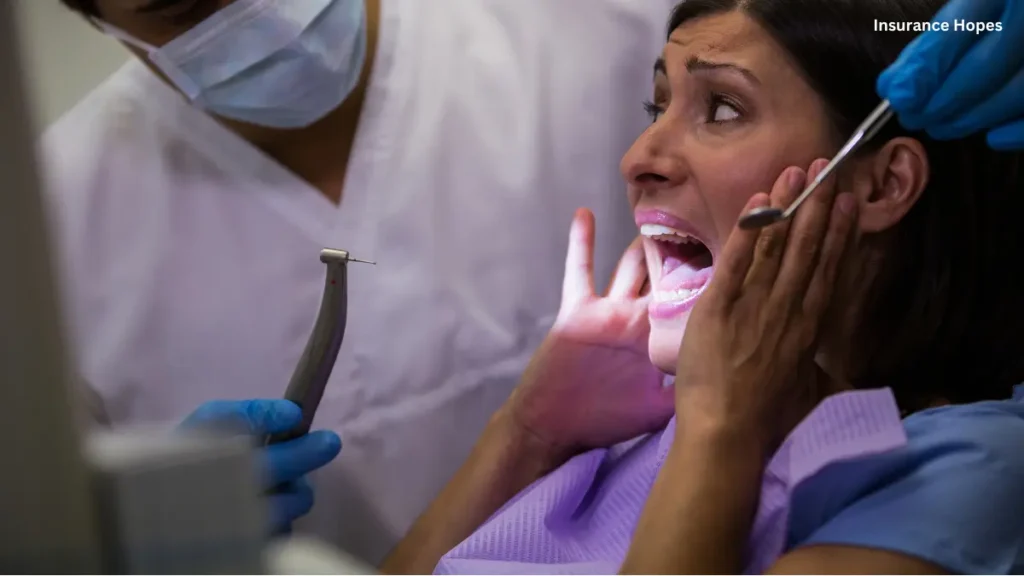WISDOM TOOTH REMOVAL COST WITH INSURANCE

Third molars, or wisdom teeth, frequently need to be extracted because of crowding, impaction, or the possibility of future issues. significantly though the operation may seem intimidating, worrying about money might make things significantly worse. Thankfully, a lot of dental insurance policies pay for a percentage of wisdom teeth extraction expenses.
However, the thought of having a wisdom tooth out might be frightening due to the expense involved as well as the actual process. Dental insurance can provide some assistance, which is excellent news, but understanding the specifics of the coverage can be challenging. This guide intends to provide you with the knowledge you need to make educated decisions regarding your oral health by demystifying the cost of wisdom tooth removal with insurance.
Comprehending the Baseline: Expenses of Procedures Without Insurance
Prior to getting too far into insurance details, think about how much wisdom tooth extraction would cost without it. This starting price is contingent upon multiple factors:
Complexity of the extraction: It is less expensive to extract easily erupted teeth than deeply rooted or impacted teeth.
The number of teeth removed: Obviously, four wisdom teeth extractions will be more expensive than one.
Type of anesthesia: Compared to general or nitrous oxide, local anesthesia is less expensive.
Geographical location: Various provider fees and living expenses cause prices to range between locations.
Below is a general range to anticipate
$200–$400 for a simple extraction of each tooth
$225 to $1,100 for each tooth extracted surgically (up to $4,000 in difficult instances)
The Impact of Insurance: What Amount Is Covered?

Let’s now discuss insurance in this context. Usually, dental plans will pay between 50% and 80% of the total cost, though this might vary greatly:
Type of coverage: PPO policies, as opposed to HMO or indemnity plans, frequently provide greater flexibility and coverage.
Annual maximums: The majority of plans contain caps on the overall amount of dental costs, which includes extraction of wisdom teeth.
Deductibles: Before insurance coverage begins, you may be required to pay a deductible.
Pre-existing conditions: Pre-existing wisdom tooth problems may not be covered by all insurance.
Understanding Your Policy: Crucial Actions
It’s essential to: in order to comprehend your particular coverage.
Speak with your insurance company: Find out exactly what is covered for wisdom teeth extraction under your plan, including the percentages, maximums, and excluded costs.
To acquire preapproval: For complicated operations like the extraction of wisdom teeth, many plans demand preapproval. This procedure can be aided by your dentist.
Examine your explanation of benefits, or EOB: This paper will indicate the amount your insurance covered and the amount you will still need to pay out-of-pocket following the surgery.
Handling Expenses Apart from Insurance

Insurance does not always eliminate costs. The following are some methods to deal with them:
Look around for a provider: Examine the costs offered by several dentists to determine which one in your network is the most economical.
Think about other ways to pay: Find out if the dentist accepts payments in advance or provides discounts or payment options.
Examine programs that provide financial assistance: For eligible patients, certain dental clinics or colleges provide care at a discounted rate.
Use accounts for flexible spending (FSAs): Make pre-tax contributions to an FSA if your employer matches them in order to pay for dental costs.
Speak with your dentist: Talk to your dentist about your particular situation and insurance coverage. They are able to provide you a more precise cost estimate depending on your particular requirements.
Look around: To be sure you’re getting the greatest deal possible, compare the costs offered by several dentists.
Think about accounts for flexible spending (FSAs): By using these accounts, you might potentially save money out of pocket by putting aside pre-tax funds for medical and dental needs.
Examine your financing options: To assist in controlling the cost of operations, certain dental clinics give financing plans.
Costs not covered by insurance: Be advised that some charges, such as those related to anesthesia, X-rays, or prescription drugs, may not be reimbursed.
Emergency extraction: Pre-approval may not be available and prices may increase if you need to have your wisdom teeth out right away because of discomfort or infection.
Future problems: Keep in mind that you might have to pay more for follow-up operations or post-operative issues.
Understanding the variables affecting wisdom tooth removal costs is essential before delving into the specifics of insurance coverage:
Procedure complexity: The simplest tooth extractions are the least expensive, whereas surgical intervention is more expensive for deeply rooted or impacted teeth.
Location and amount of experience of the dental professional: Depending on your location and the degree of experience of the oral surgeon or dentist, costs can differ dramatically.
anesthetic type: Generally speaking, local anesthetic is less expensive than general anesthesia, which necessitates more equipment and oversight.
X-rays and further diagnostic tests: If more imaging or testing is required, the total cost will increase.
Medications and supplies: The cost of the entire bill may include post-operative pain medication and other supplies.
Insurance Protection

Let’s now examine how insurance can assist in controlling these expenses:
Coverage percentage: The majority of dental insurance policies pay between 50% and 80% of the authorized amount for wisdom tooth extraction. The precise percentage, though, varies based on your plan.
Deductible: Prior to your insurance taking effect, you probably have to pay your deductible. You must pay this annual set fee for eligible services.
Annual maximum: The removal of wisdom teeth is one dental surgery for which many plans have an annual maximum coverage limit. Should you go over this cap, you will be liable for the remaining amount?
Pre-approval: Pre-approval is required by some plans for specific operations, like as the extraction of wisdom teeth. Make sure you comprehend the particular requirements of your plan and obtain pre-approval if necessary.
CONCLUSION
A wise investment in your dental health is the extraction of your wisdom teeth. Although the cost may be a worry, you can effectively control this expense by being aware of your insurance coverage, looking into your options, and making plans in advance. To develop a strategy that balances your money and health, speak with your insurance company and dentist.











